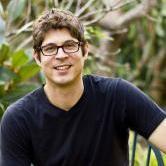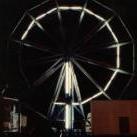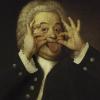Leaderboard
Popular Content
Showing content with the highest reputation on 07/09/2016 in all areas
-
Hi all, This is a song I wrote under extreme pressure. It was a cold, dark winter morning in the western district of Reykjavík. I woke up at 0730 and within five minutes was in the shower. This was one of those mornings where the hot water was shy to arrive, but I was in a hurry and could not waste precious minutes waiting for it, so into the cool shower I hopped. I am a seasoned cold water enthusiast so it took me but a few seconds to adapt, but when the hot water finally arrived I found myself completely seduced by it. "Bah, there's no rush", I thought, and proceeded to take a leisurely if focused shower. The clock struck 0800 as I exited the shower and upon discovering the time decided that it would not be wise to waste too much time, after all, I was to show up at 0830 at the academy for what my composition teacher called a "special assignment". In a modest hurry I ate a small breakfast and packed a few things to serve as snacks, which my teacher warned his students would be essential. It was 0815 as I left my apartment, clothed for the harsh winter in nothing but a suit, a snow jacket and a hat and gloves, but luckily I had decided to drive home the previous night rather than walk, which saved me a half hour stroll through downtown Reykjavík. It normally only takes twenty minutes to walk, but as it had snowed heavily the night before I would have had to wade knee deep in fresh snow to get to the academy, which adds an extra ten minutes to the journey at least. Unfortunately, the same problems that haunt pedestrians also haunt drivers to a much greater extent. Driving through snow is not necessarily more difficult if you have winter tires, perhaps slightly more perilous so a slower speed is advised, but getting your car stuck is a huge issue. Just my luck, I couldn't even leave my parking space. Thankfully it was easy to dislodge but it took ten minutes if you also account for removing snow off of the car itself. I didn't get stuck on the way, but I passed many cars that did, so I can only consider myself lucky. I arrived at the academy a little past 0900 and found the class in complete silence, working furiously. I greeted the class and apologized for being late, citing the unfriendly driving conditions. My teacher was sympathetic, having showed up a little late himself, but spent no time on idle chit-chat. I could tell immediately as I walked in that the special assignment he spoke vaguely of was going to be crazy. My suspicions were confirmed when he said: "On the table you will find a collection of poems. Choose one to your liking and compose a song for soprano and piano. I am expecting a singer and a pianist at noon to come and collect the pieces. They must be ready by then." I cannot accurately describe my mindset that morning, but it was very zen. Oddly, I did not suffer from any kind of doubts or writer's block or anything like that. I chose a poem, took a seat and began to think. What do I do? Instead of wallowing in inner turmoil over the viability of this or that approach, I pounced on the first idea that I had. I spent maybe an hour sketching out the general architecture and coming up with answers to some questions that would be important to the process. Then I started writing, and I wrote almost non-stop until noon (I went 15 minutes over too), working out all of the fine details that needed to be settled. At last I was free - I handed over what I had done, almost unconscious of what I had been doing the past four hours. The singer and pianist hastily rehearsed the pieces during lunch break and returned at 1300 to recite the pieces as best they could. The performance was far from perfect; most of the pieces were quite difficult and they had little time so nobody blamed them. I was conflicted about the result. On one hand I was delighted that it turned out very nearly how I had imagined it despite the inaccurate performance, but on the other hand it lacked focus in important moments. My teacher said as much, and urged me to revise it. Revise it I did, and I also ended up performing it with the same singer at the end-of-semester concert for this year. The recording you hear is live from that concert. I hope you enjoy. The moral of the story being, of course, do not spend too much time preparing to move. The only way to know if you are one step closer to checkmate or whether you committed a horrible blunder is to move the piece. Do it in an informed manner, but do not be afraid to falter, as it can only serve as a learning experience. A side note to the moral is: Sometimes you just don't have enough time to fully realize your piece. If there is a tangible deadline, i.e. somebody is literally waiting for you to give them the score, you just have to get to work and finish it in any way you can. It is much easier to revise a piece than perfect it before it is finished, and you have plenty of time after the deadline to do that. These are lessons that I now carry with me, having experienced them first-hand. P.S. Before you judge the singer too harshly, know that the hall is notorious for being very difficult to sing in as it is almost completely dead acoustically. Believe me when I say she is a fantastic singer when she is better rehearsed than she was at this concert and is in a space which is not actively sabotaging her. I was a little nervous so I managed to completely space out for the first half second or so of the piece, which is why I came in a little late - I apologize for that.1 point
-
All of the composers mentioned here in negative terms have produced at the very least a good listening experience. The trouble with atonal music, which I prefer to call deconstructionist, is twofold. First, you cannot deconstruct in perpetuity. It gets tiresome and vapid. And second, most of the music is not worth a second listening. Meaning, I'm a hundred percent interested the first time and 0% the second. One exception to me is Ligeti, who's brilliance I find endless, AND he manages to avoid being pidgeon-holed into a genre. Let's just call him "modern." There is a reason people watch Seinfeld reruns. They stand up to repeated viewings because they are meant to be. Same with music.1 point
-
I freaking love this. I am into just about any style or purpose of music that you can think of minus 2 or 3. I played the NES, SNES and original gameboy consoles when I was little and know all of that sound. This sounds awesome. It is catchy just like those game themes were. You have nailed the sounds down with your samples or whatever you use. The syncopated feel is great. You need a B section as in a sonata or something. You need to switch up the rhythm just enough, invert the melody or something and make that B section then come back to the original before it ends. It is not so much a whole brand new B section per se, but it would be like a B section to your original melody. That will lengthen it just enough. I am thinking 1:30 would be about the right length.1 point
-
Yeah. An opinion is just an opinion. It is not fact. It is not right or wrong. People can have their opinions. They shouldn't force them on people like it is Truth. I think we have lost our ability to respect in our society. We are so self congratulating these days. So opinionated and so in each others faces. Being an individual with certain taste and preferences and beliefs is a very special thing to hold dear. A lot of human history is based on the lack of freedom to think and appreciate and speak your mind. We take for granted that we have been living in the freest times in human history where we are allowed to be an individual with a well developed and educated mind and have those opinions to ourselves. If we would learn to respect each other again even if we disagree with each other then we would make true strides in furthering civilization.1 point
-
"The norm nowadays is to produce little pieces of under 10 minutes, very often under 5 minutes". Absolutely true. And it also has to be written for the weirdest possible chamber ensemble. No works for solo piano. And don't waste a dime writing for orchestra. It must be a chamber piece, and include the wackiest instrumental combination you can imagine used in the most puzzling way (extended techniques only, please!), lest you never be considered a "serious" composer. And forget about having an audience!1 point
-
All that buzz , but in the end the article discusses how to make and keep an audience for new music. So in the end I don't really need it, do I?1 point
-
I like how Richard Strauss, ever the egomaniac, said on his deathbed, "It's a funny thing, Alice, dying is just the way I composed it in Death and Transfiguration."1 point
-
This probably doesn't constitute as a "best" death, but more tragic: Anton Webern was shot while smoking a cigar by an American soldier in 1945 in Austria. The soldier apparently died later filled with sorrow and remorse. P.S.: Best composer death, fictionally, is the death of Mozart in Amadeus.1 point
-
A few other nominees: Ernest Chausson, who literally "hit the wall" (while riding a bike downhill). Enrique Granados, whose successful musical career was fatally torpedoed (by a German U-boat during WW 1). Alessandro Stradella, targeted by a hitman over his musical lessons (or more precisely, over his habit of moving into extramusical issues with his female pupils).1 point
-
I nominate Arnold Schoenberg, who convinced himself into dying on a Friday the 13th, out of his own superstitions: The composer had triskaidekaphobia (the fear of the number 13), and according to friend Katia Mann, he feared he would die during a year that was a multiple of 13. He dreaded his sixty-fifth birthday in 1939 so much that a friend asked the composer and astrologer Dane Rudhyar to prepare Schoenberg's horoscope. Rudhyar did this and told Schoenberg that the year was dangerous, but not fatal. But in 1950, on his seventy-sixth birthday, an astrologer wrote Schoenberg a note warning him that the year was a critical one: 7 + 6 = 13. This stunned and depressed the composer, for up to that point he had only been wary of multiples of 13 and never considered adding the digits of his age. He died on Friday, 13 July 1951, shortly before midnight. Schoenberg had stayed in bed all day, sick, anxious and depressed. His wife Gertrud reported in a telegram to her sister-in-law Ottilie the next day that Arnold died at 11:45 pm, 15 minutes before midnight. In a letter to Ottilie dated 4 August 1951, Gertrud explained, "About a quarter to twelve I looked at the clock and said to myself: another quarter of an hour and then the worst is over. Then the doctor called me. Arnold's throat rattled twice, his heart gave a powerful beat and that was the end".1 point
-
That's okay. You can ignore this thread if you want to. I just heard John Rutter's 'All things bright and beautiful' on the radio so I turned it off. The thing I can't stand about John Rutter is his pop sounding syncopations in his very classical sounding music that make it all seem like tasteless mush.1 point






